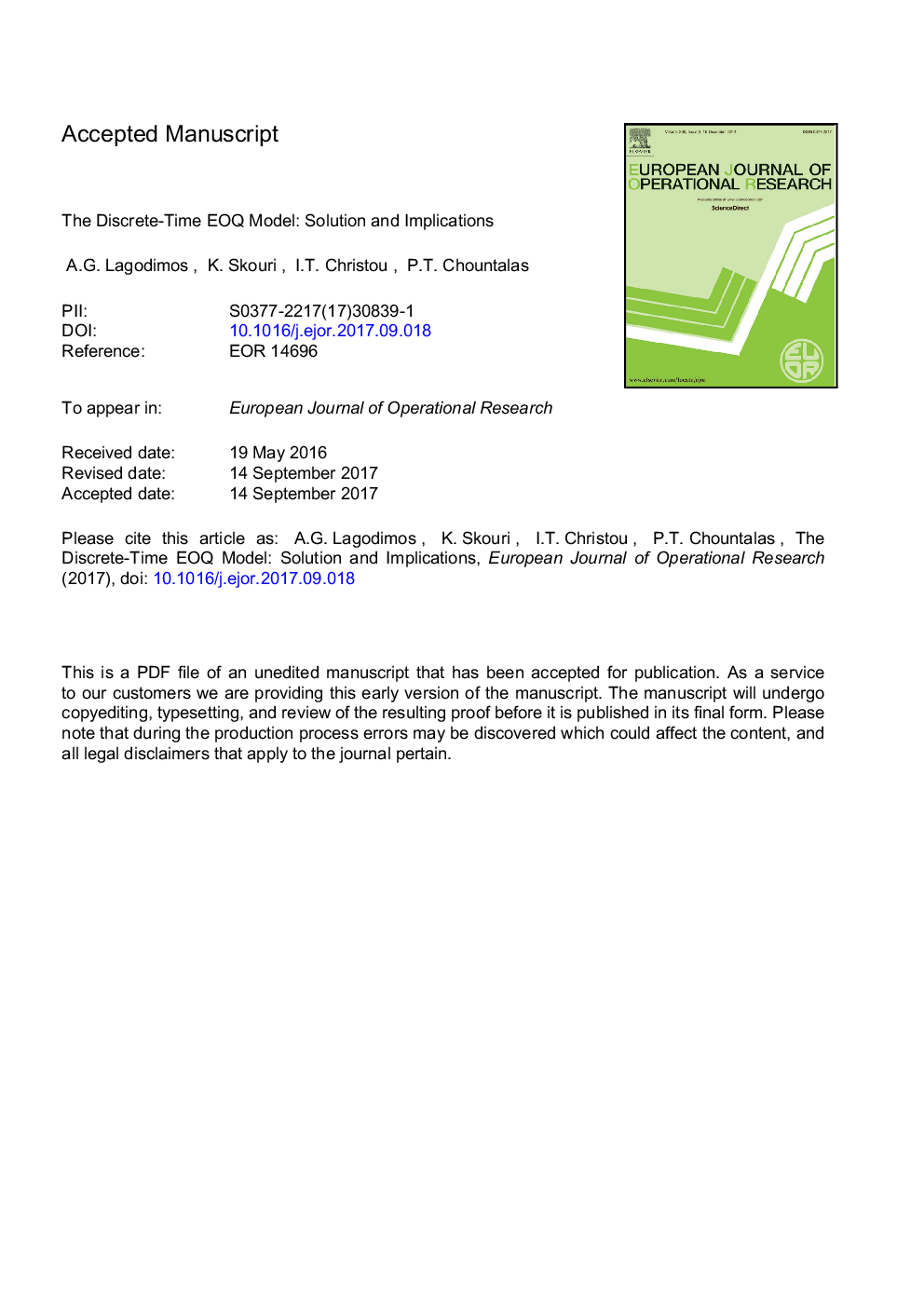| Article ID | Journal | Published Year | Pages | File Type |
|---|---|---|---|---|
| 6895206 | European Journal of Operational Research | 2018 | 28 Pages |
Abstract
Consideration is given to the classical EOQ (with backorders) model, where one of its original assumptions is modified. Instead of being continuous, time forms a sequence of indivisible quanta (unit periods). The implications of this assumption, common in the analysis of periodic review policies, are explored for deterministic demand. Modeled as an inventory system under the (S, T) policy, long-run average cost is derived, and it is shown that optimal control involves the solution of a two-dimensional non-convex integer optimization problem. Properties are established, leading to a solution algorithm which guarantees optimal S and T determination with (at most) three cost-function evaluations. It is shown that, contrary to intuition, the classical EOQ optimal cost is not a lower bound for the system studied. This is exploited to develop distribution-free lower bounds for stochastic periodic review systems together with properties rendering them useful in inventory optimization.
Related Topics
Physical Sciences and Engineering
Computer Science
Computer Science (General)
Authors
A.G. Lagodimos, K. Skouri, I.T. Christou, P.T. Chountalas,
